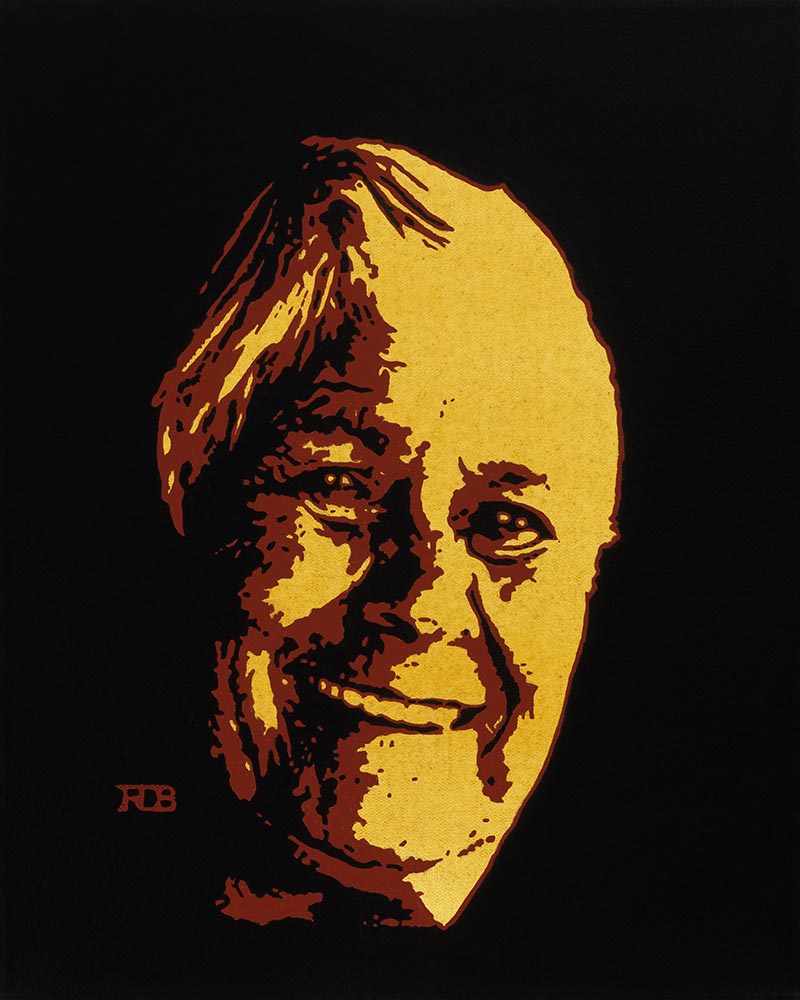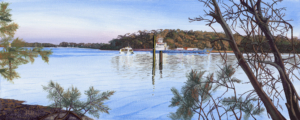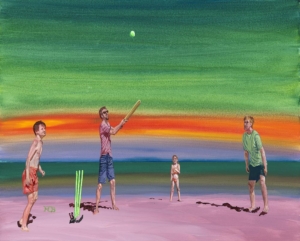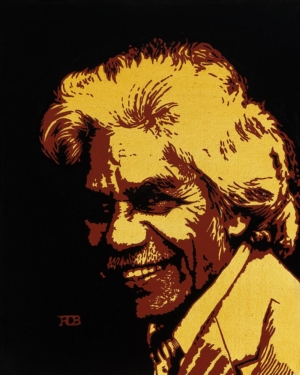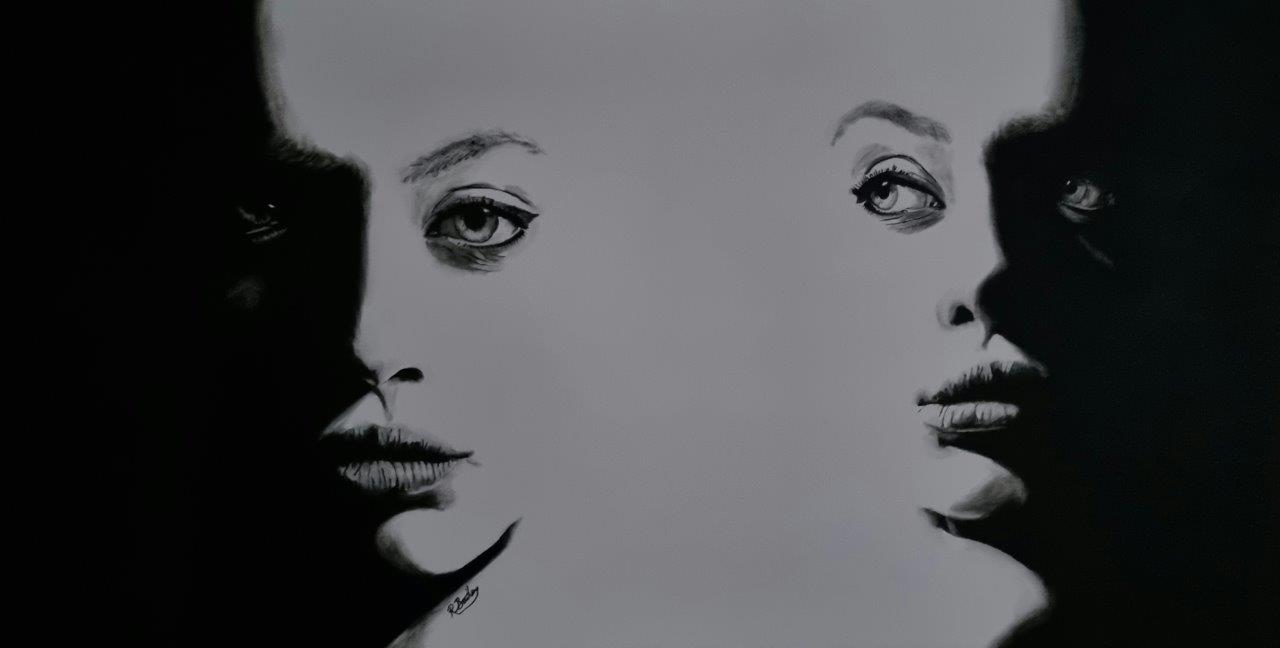“Lowitja O’Donoghue”
$150
Acrylic on Stretched Canvas
400 mm x 500mm
Professor Lowitja O’Donoghue AM CBE was born in 1932 at Indulkana in South Australia of Pitjantjatjara and Irish descent. She was Australian of the Year in 1984, the first and only Aboriginal Australian to address the UN General Assembly, for seven years the most senior Aboriginal person in public office and a delegate to Australia’s 1998 Constitutional Republic Convention.
At two years old, she and two of her sisters were taken away from their mother by missionaries on behalf of the Aboriginal Protection Board. The girls grew up at Colebrook Children’s Home and did not see their mother again for over 30 years.
At the home, her Aboriginal name, Lowitja, was changed to ‘Lois’. She wasn’t allowed to speak her own language or to ask questions about her origins or about her parents.
She attended Unley General Technical High School before starting training as a nurse. After initial training, she was refused entry to the Royal Adelaide Hospital to continue her studies, because she was Aboriginal. This led to her active involvement with the Aboriginal Advancement League, joining with other Aboriginal people, trade unions and churches to agitate for the rights of Aboriginal people to enter professions and take up apprenticeships. She fought the decision and in 1954 became the first Aboriginal trainee nurse at the Royal Adelaide. She graduated and became a Charge Sister at the hospital, where she stayed for ten years.
In the mid 1960s Lois went to Assam in India to work with the Baptist Overseas Mission. She returned to Australia and after the Referendum in 1967 that recognised Aboriginal people as full and equal citizens joined the Department of Aboriginal Affairs. She accepted a position in Coober Pedy where an aunt and uncle, noticing the family resemblance, recognised her in a local supermarket. They told her that her mother, Lily, was at Oodnadatta. They sent word to her mother that Lois would visit her.
When Lois and her older sister, Eileen, finally made the trip, their mother was too ashamed of her living conditions to welcome them into her ‘humpy’. They stayed at a hotel. Even more tragically, they could not communicate in their language, Pitjantjatjara, without an interpreter.
In 1975 she became the director of the South Australian region of the Department of Aboriginal Affairs. Two years later, she was a founding member of the National Aboriginal Conference. Lowitja O’Donoghue was named Australian of the Year in 1985 in recognition of ‘her enormous personal contribution in bridging the cultural gap between Aboriginal people and the rest of the Australian Community’. She believed the award highlighted the fight for Aboriginal equality:
In 1990 she was appointed as inaugural chair of the Aboriginal and Torres Strait Islander Commission (ATSIC), advising government on policy and managing a budget of a billion dollars a year. O’Donoghue played a key role in major policy initiatives that followed, including the formation of the Council for Aboriginal Reconciliation, legislation on Native Title and the framing of a comprehensive social justice package. On Reconciliation she said:
“We have a long way to go but there is no turning back. For indigenous Australians, the acid test of reconciliation will be improved health, better housing, education and employment. Reconciliation is the way of the future, our shared future in which Australia is united as one people with many rich cultures and a commitment to justice and equity.
Social

High Quality Giclee Fine Art Prints
 I am now making some of my works available in super high quality Giclee Fine Art Prints.
I am now making some of my works available in super high quality Giclee Fine Art Prints.
Contact Rod
Phone
0407 240 702

